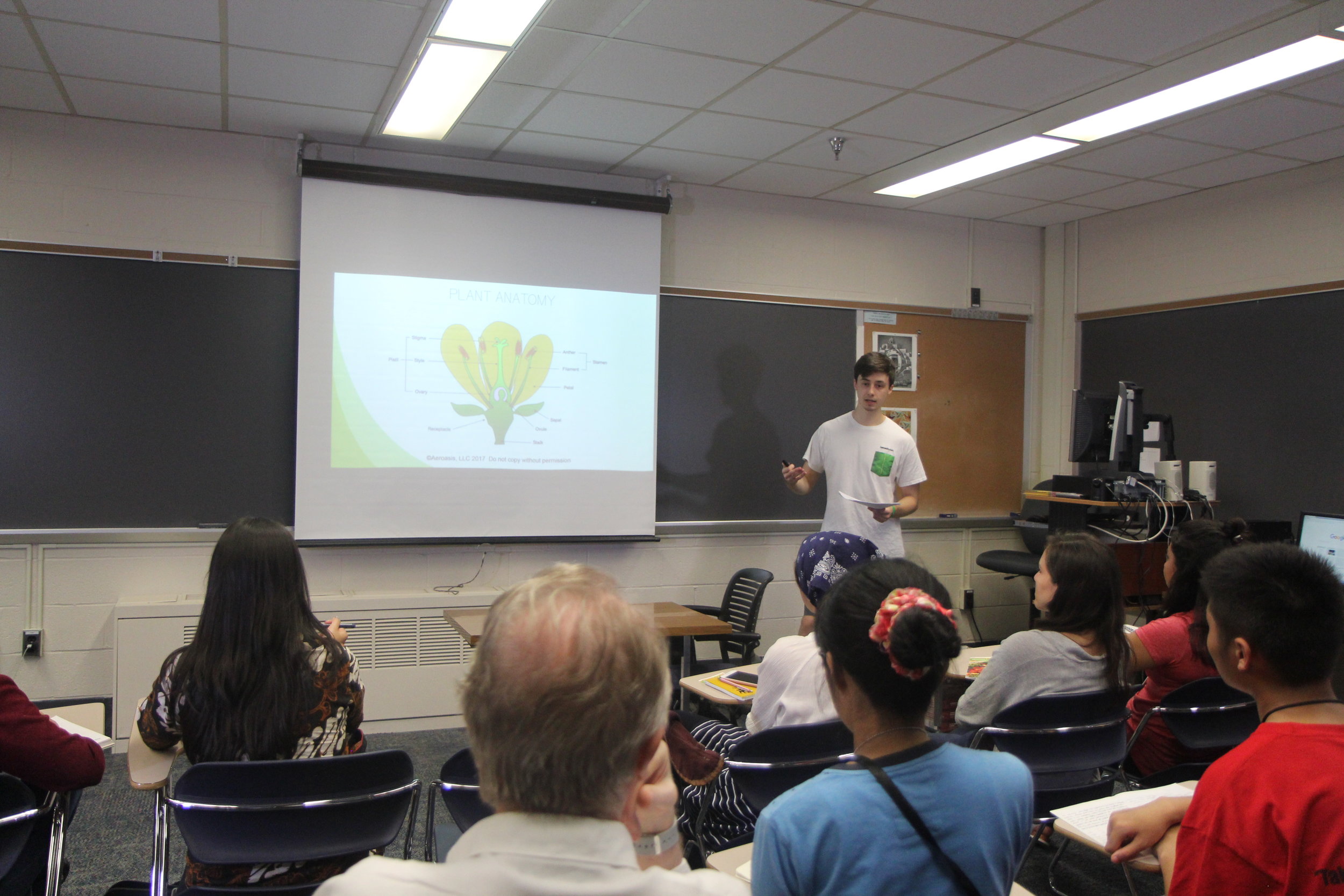A Young Startup Looking To Change Sustainable Food Production At The Hyper Local Level
August 21, 2017
A Young Startup Looking To Change Sustainable Food Production At The Hyper Local Level
Without a doubt, one of the most pressing issues in the modern world is that of feeding a rapidly expanding global population. Estimates from a UN DESA report in 2015 indicate that the estimated global population by 2050 will rise to over 9.7 billion people, and that over 66% of those people will be living in urban centers. With such staggeringly high numbers of people in urban areas, providing a food production solution that can rise to the challenge of feeding billions every day (while keeping a low enough carbon & land area footprint) and be environmentally and economically viable is one of the most important problems we must solve to prepare for this inevitable future.
Aeroasis, a young & growing AgTech startup based in South Florida hopes to tackle this problem using a hyper local, decentralized approach. Using innovative hydroponic & aeroponic technologies, combined with the most efficient renewable energy harvesting systems available today, Aeroasis aims to impact the food production/distribution industry in preparation for a more crowded world.
Aeroasis has a deep focus on educational work, providing schools & school districts with the resources to start and maintain their own indoor farms, and giving students a thorough understanding of the problems surrounding food production and distribution today. As the next generation of global citizens grows up, these technologies will continue to get exponentially more cost effective, and the young adults that are properly educated will be prepared to enter a world where they can consciously choose to consume and endorse hydroponically grown produce. Beyond just consumption, the use of automation technologies and deep analytics through sensor feedback will allow consumers and urban dwellers to go beyond just consumption, growing much of their produce in-home.
Aeroasis has been developing Oasis Mini, an automated micro Smart Garden, for the last two years in an effort to prove the viability of this concept. Oasis Mini is a 3 chamber automated Smart Gardening system that takes up less space than a fridge, but can produce up to 26 harvests a year in the case of leafy greens like lettuce and cilantro. Small systems like this are great for any urban householder with a green thumb but no space for a garden, and even for consumers with no gardening experience or free time looking to grow a small garden without all the work and mess. Oasis Mini is small, but its ability to grow food at the highest quality using 90% less water, 60% less nutrients, and no pesticides ever is a powerful showcase of the potential for these technologies to be scaled up in the very near future. Removing the concept ofseasonal crops also makes food availability universal, and allows the individual consumer to make conscious and unlimited choices about their nutrition. There is a long list of benefits to growing hyper local, but here are just a few big ones:
- No transportation and packaging means up to 80% less food waste. In the US alone, billions of tons of food are wasted every year, and the majority of that waste happens at the harvest, processing, packaging, and retail levels. Making hyper local systems ensures minimal processing and transportation, significantly reducing waste.
- Using indoor controlled systems means pests are much less of an issue. Pesticide use has been linked to several forms of disease in humans, and eliminating the need for potentially dangerous chemical inputs in the growth process increases the quality and safety of the end product.
- Having communities observe and be a part of the growth process of their food increases awareness and respect for the food grown and results in less consumer side waste. Having community scale Smart Farms incentivizes community outreach and integration and increases the sense of shared responsibility in local groups. This can have an incredibly positive effect on people’s ability to connect and interact peacefully.
- Any excess in harvests can either be given to those in need, or can be sold at a market premium due to its freshness and high quality.
Aeroasis is working hard at building this vision. Their team sees a time in the very near future when either all homes, or at least all communities, will come equipped with a larger scale Smart Farm system that allows them to grow much or all of their produce in-home or at a community center style farming co-op. The core mission at Aeroasis is to facilitate/develop projects like this in an effort to help feed the world while reducing the enormous footprint agriculture leaves on the planet. Aeroasis also does consulting and design work related to projects in community centers, retail spaces, and even individual homes. They provide a range of services from design, fabrication, installation, and maintenance of Smart Gardening systems to doing public speaking and awareness work at conferences, workshops, and other sustainability events.
The Aeroasis CEO, Thomas Wollenberger, just taught a 2 week workshop on sustainable food production in partnership with UNESCO affiliated clubs in the Washington DC area, and is working with several schools and school districts in Florida to bring hydroponics to classrooms. Aeroasis continues to develop initiatives and workshops around the world with strategic partners.
For more information on Aeroasis, what they do, who they are, and how to contact them, you can visit www.aeroasis.com.




